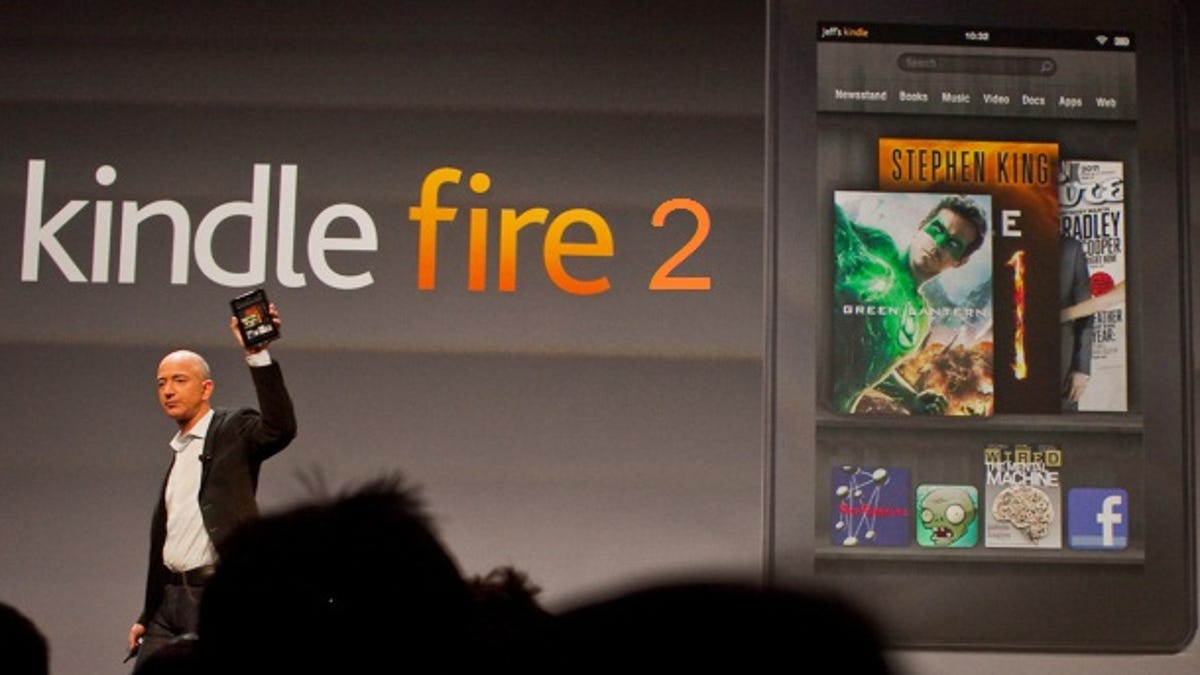Will someone besides Amazon release the next Kindle tablet?
Other device makers might soon be knocking at Amazon's door and offering to lend a hand with future tablets.

Amazon sold millions of Kindles this holiday season, led by the company's first-ever tablet, the Kindle Fire, leaving some analysts wondering if other Android tablets might soon be flavored with Amazon's secret sauce.
After a full year of dozens of Android tablets from numerous manufacturers, none--excepting the discontinued and momentarily deeply discounted HP TouchPad--made more than the slightest dent in the iPad's dominance in the slate market. None, that is, until Amazon introduced its clunky but inexpensive loss leader--available for just $199 and preregistered to your Amazon account so you can begin consuming the company's universe of content right away.
Despite the massive gulf between the iPad and Kindle Fire when it comes to price and specs, the two successful tablets do have one important characteristic in common: easy, built-in access to all kinds of content to consume on the device via the iTunes and Amazon stores, respectively.
"Devices need to lead with content services or they're dead in the water," Forrester analyst Sarah Rotman Epps told me. "By next summer we'll have had several months of Amazon demonstrating that a successful consumer electronics product strategy has to lead with content services."
Richard Windsor, global technology specialist for Nomura Securities, went one step further. He sees some of the current Android tablet makers looking to Amazon to help float some of their future offerings, or perhaps going as far as taking over production of the follow-up to the Kindle Fire.
"I'm not convinced Amazon's going to stay in the hardware business very long. Look at their business model--they are selling this thing at cost in order to make money on content. So if you can get someone else to make the tablet for you and sell it with your user experience on it, what do you care?"
Windsor suspects Amazon's first $199 tablet could be a way to "seed the market." He sees makers of competing Android tablets--which consumers seem to view as overpriced and lacking access to compelling content--in a position to start courting Amazon for possible partnerships.
What you could get is a range of designs and sizes to suit different pockets without Amazon having to make them all. You might see an "HTC Dream Kindle" or the "Kindle Fire HTC" or "Kindle Fire 2 10-inch by HTC."
Amazon is famously mum on its future plans. Despite months of speculation, the company refused to acknowledge that it was working on a tablet until it was unveiled by CEO Jeff Bezos this fall.
For its part, Google has been working feverishly of late to make more content available via the Android Market. In the past year books, movies and most recently music have all been introduced for purchase and consumption on mobile devices running the OS, an increasing number of which will soon be getting the much improved Ice Cream Sandwich version of Android.
Despite Google's best efforts, however, no tablet with native access to the Android Market has taken off with consumers. Hot sellers like the Kindle Fire and the Barnes and Noble Nook do their best to push users in the direction of their own content. We'll soon see if other tablet makers opt to follow their lead as well.

